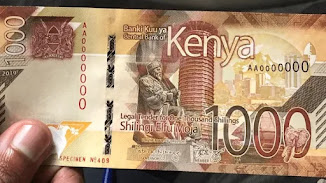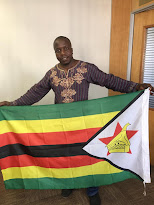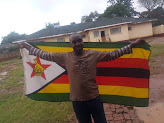 |
| The Great Wildbeest migration |
For the soccer lovers and enthusiasts, World Cup is a competition that comes once in every four years, but did you know that the Great Wildebeest Migration is referred to as the World Cup of Wildlife? If you ever visit the Magical Kenya between the months of July through to October, then make a point of going to the Maasai Mara National Reserve and you will be part of the history as you witness the largest animal migration in the world, the Seven New Wonders of the world. Every year, more than 2 million animals (wildebeest, zebra, and gazelle) migrate in a clockwise direction across the ecosystems of the Serengeti (Tanzania) and the Masai Mara (Kenya). Maasai Mara in Kenya is also the home of the Big Five and this includes the African elephant, lion, leopard, Cape buffalo, and rhinoceros.
Kenya, like the rest of the world, is still battling the COVID-19 menace with reported cases totaling at slightly above 32,000, and with over 500 fatalities.
From the air disaster in Karachi, Pakistan that claimed the life 98 passengers, to volcano eruption in Philippines, bush fire in Australia, earthquake in Turkey, even snow in Antarctica not to forget the swarm of locusts in East Africa, surely, we all agree that we should control, alt, delete 2020 and write it off, but let’s look at the brighter side of things.
It is common knowledge that we cannot talk about field events without mentioning Kenya in the conversation! Kenya first participated at the Olympic Games in 1956, and has ever since sent athletes to compete in different track events winning a total of 103 medals with 31 of them being gold. In the medals ranking in Africa, Kenya takes the crown as the master of field events with Ethiopia bowing down to a second place. Kenya took the second place in the world athletics championships in 2019, losing the first place slot to perennial winners, the United States.
In the most coveted INEOS Challenge of October 12, 2019 that saw the first man on earth to ever run under two hours in a full marathon, Eliud Kipchoge, a 35 year old Kenyan world marathon record holder, defied the odds of science by completing a 42km on a time 1:59:40, and confirmed to the world that indeed no human is limited. The achievement was recognized by Guinness World Records with the titles ‘Fastest marathon distance (male)’ and ‘First marathon distance run under two hours’.
History indicates that, most athletes in Kenya hail from the highland nilotes people, the Kalenjin tribe, who are found majorly in the Rift Valley and Western regions of the country. Legend has it that, the sweet charcoaled milk stored in the gourd, popularly known as Mursik in the native language of the Kalenjins, contains magical strength that makes the tribe, a running tribe. However, this is unverified since, in the recent times Kenya has been represented by distance runners from other tribes including the Kikuyu, the Kisii, the Kamba etc, but Kalenjin still remains the dominating tribe.
The Country
Colonized by the British in the 19th century, Kenya attained its Self-rule on 1st June 1963 gazetted as a public holiday called Madaraka day, and later attained Independence on 12th December of the same year, gazetted as a public holiday called Jamhuri day. Kenya has had three (3) presidents since its independence, with the current sitting president H.E Uhuru Kenyatta being the fourth.

There are three (3) networks across the country Safaricom, Airtel Kenya & Telkom (formerly known as Orange). Safaricom has the widest coverage in the country with about 26 million subscribers. M-pesa is the most popular product from Safaricom that not only Kenya has embraced it but also over 15 other countries in the world including Tanzania, Uganda, Ghana, South Africa, India among others. M-pesa users can send and receive money worldwide. M-Pesa is a mobile phone-based money transfer, financing and micro-financing service, launched in 2007. Whenever you are in Kenya visit any M-pesa agent and you will be able to send money, pay bills and buy anything with Mpesa. It is fast, secure, convenient and very easy.
Transport
Kenya is a country with improved public transport road network. There are planes, boat, ship, ferries, buses, Matatus, local taxis, digital taxis, Tuk Tuk, Boda Boda, Bicycles etc, and soon introducing the Bus Rapid Transfer (BRT) buses just like our good neighbors Tanzania and Rwanda. Speaking of which; have you ever heard about The Matatu Culture?
The Matatu Culture is all about celebrating the Matatu Industry though Art, Music, People & Culture. The artwork and graffiti displayed on Matatus are usually used as a form of communication and a way to create awareness in a wide number of topics like soccer, politics, public figures, trends etc (https://matwana.co.ke/).
Matatus are easily found in reasonably sized cities and towns that have plenty of services covering every major road and suburb ready to serve millions of people everyday. The ‘pimped’ Matatus are dearly referred as ‘Nganya’ by its users.
Digital taxis first came to Kenya in January 2015 in form of Uber Kenya. Four years later, we have over seven (7) digital taxis in Kenya including Little Cab, Taxify (Bolt) among several others. Uber is the most popular and is available in three (3) in Kenyan cities that is Nairobi, Mombasa & Kisumu. The fascinating thing about these app-based taxis is that, hiring a taxi is just a call away. Whether it’s midnight 12 or early 6, one doesn’t need to wait for Matatus to get started. Pick up your phone and book the cab through the application.
The Running Nation
Did you know that it is exactly 40 days before the biggest run of 2020? The 40th Race, 2020 Virgin Money London Marathon will take place on October, 4, 2020 after the postponement of the initial date, April, 26, 2020 schedule due to the novel coronavirus. The long-awaited head-to-head between Eliud Kipchoge (Kenya) and Kenenisa Bekele (Ethiopia) will headline the men’s race.
 |
| Eliud Kipchoge, No Human is Limited, champion |
It is common knowledge that we cannot talk about field events without mentioning Kenya in the conversation! Kenya first participated at the Olympic Games in 1956, and has ever since sent athletes to compete in different track events winning a total of 103 medals with 31 of them being gold. In the medals ranking in Africa, Kenya takes the crown as the master of field events with Ethiopia bowing down to a second place. Kenya took the second place in the world athletics championships in 2019, losing the first place slot to perennial winners, the United States.
 |
| Bridget Jepkosgei, Women world holder |
As at the end of 2019, Kenya became the first country in the world to hold all half and full marathon world records. While, the ‘No Human is Limited’ champion Eliud Kipchoge holds the men’s world marathon record of 2:01:39 set at the Berlin Marathon in 2018, Brigid Kosgei proceeded to smash Paula Radcliffe’s 17-year-old women’s marathon world record by an impressive 2:14:04 as she won the Chicago marathon for the second time. Joyciline Jepkosgei currently holds the women’s world half marathon record of 1:04:51, attained on October, 2017 in Valencia, while Geoffrey Kamworor holds the world half marathon record of 58:01 set in Copenhagen.
 |
| Nickson Chepseba, and the rest of the world |
History indicates that, most athletes in Kenya hail from the highland nilotes people, the Kalenjin tribe, who are found majorly in the Rift Valley and Western regions of the country. Legend has it that, the sweet charcoaled milk stored in the gourd, popularly known as Mursik in the native language of the Kalenjins, contains magical strength that makes the tribe, a running tribe. However, this is unverified since, in the recent times Kenya has been represented by distance runners from other tribes including the Kikuyu, the Kisii, the Kamba etc, but Kalenjin still remains the dominating tribe.
The Country
Colonized by the British in the 19th century, Kenya attained its Self-rule on 1st June 1963 gazetted as a public holiday called Madaraka day, and later attained Independence on 12th December of the same year, gazetted as a public holiday called Jamhuri day. Kenya has had three (3) presidents since its independence, with the current sitting president H.E Uhuru Kenyatta being the fourth.
With the time zone of GMT +3, Kenya lies in the Northern Hemisphere and the Equator crosses five (5) of its town. Did you that the equator divides the African continent into 2 equal parts North and South? Now you know! Kenya has five (5) neighboring countries bordering her including Tanzania(South), Uganda(West), Ethiopia(East), South Sudan(North) and Somalia(East). In line with the 2010 Constitution of Kenya that the currency should not bear an image of a person, on October 1, 2019, saw Kenya doing away with old generation notes and embraced the new Kenya shilling notes. The highest court in land is Supreme Court, and Kenya is governed by one of the most progressive constitutions which will be marking 10 years on August 27, since it’s promulgation in 2010. The country code is +254.
The People
The People
 |
| The Maasai People of Kenya |
With the Asian community in Kenya being gazetted as the 44th tribe in Kenya, the August, 2019 census indicates that the population of Kenya stands at 47.5 million people, with life expectancy of female 68.9 and male 64.4, an average of 66.7 (WHO 2018). People of Kenya are called Kenyans, who are generally very hospitable, generous, aggressive, hardworking, friendly and we are never ‘too busy’ to make time for strangers who later become friends. Kenya, is a Christian dominated country who makes up 84.8% of the population, Muslims coming second with close to 10% and other religions form the remainder of the population.
Nairobi
 |
| A view of Nairobi City |
The only capital city with a National Park inside it, Nairobi boasts of a cosmopolitan population of about 6.5 million people. Nairobi holds two (2) United Nations (UN) headquarters and 22 other UN agencies, and is famously popular with investors touring Africa.
Nairobi is an almost a 24 hour economy city and you can buy almost anything you can imagine within the CBD. Nairobi comes alive at night, and loud music from bars/clubs hit the airwaves as early as from 1800hrs. The official time by government where bars can start selling alcoholic drinks is from 1700hrs GMT+3
Language & Communication
The constitution of Kenya (2010), Chapter 2, Article (7) Section (i) & (ii) states that the national language of the Republic is Kiswahili and that the official languages of the Republic are Kiswahili and English. However, most spoken language in the streets of Nairobi and especially among the youths is Kenyan Creole (SwaNglish) popularly known as 'sheng', the street slang.
Language & Communication
The constitution of Kenya (2010), Chapter 2, Article (7) Section (i) & (ii) states that the national language of the Republic is Kiswahili and that the official languages of the Republic are Kiswahili and English. However, most spoken language in the streets of Nairobi and especially among the youths is Kenyan Creole (SwaNglish) popularly known as 'sheng', the street slang.

There are three (3) networks across the country Safaricom, Airtel Kenya & Telkom (formerly known as Orange). Safaricom has the widest coverage in the country with about 26 million subscribers. M-pesa is the most popular product from Safaricom that not only Kenya has embraced it but also over 15 other countries in the world including Tanzania, Uganda, Ghana, South Africa, India among others. M-pesa users can send and receive money worldwide. M-Pesa is a mobile phone-based money transfer, financing and micro-financing service, launched in 2007. Whenever you are in Kenya visit any M-pesa agent and you will be able to send money, pay bills and buy anything with Mpesa. It is fast, secure, convenient and very easy.
Transport
 |
| Kenya Airways |
Kenya is a country with improved public transport road network. There are planes, boat, ship, ferries, buses, Matatus, local taxis, digital taxis, Tuk Tuk, Boda Boda, Bicycles etc, and soon introducing the Bus Rapid Transfer (BRT) buses just like our good neighbors Tanzania and Rwanda. Speaking of which; have you ever heard about The Matatu Culture?
The Matatu Culture is all about celebrating the Matatu Industry though Art, Music, People & Culture. The artwork and graffiti displayed on Matatus are usually used as a form of communication and a way to create awareness in a wide number of topics like soccer, politics, public figures, trends etc (https://matwana.co.ke/).
 |
| A bus encrypted with Graffiti, in part of the Matatu Culture in Kenya |
Matatus are easily found in reasonably sized cities and towns that have plenty of services covering every major road and suburb ready to serve millions of people everyday. The ‘pimped’ Matatus are dearly referred as ‘Nganya’ by its users.
Digital taxis first came to Kenya in January 2015 in form of Uber Kenya. Four years later, we have over seven (7) digital taxis in Kenya including Little Cab, Taxify (Bolt) among several others. Uber is the most popular and is available in three (3) in Kenyan cities that is Nairobi, Mombasa & Kisumu. The fascinating thing about these app-based taxis is that, hiring a taxi is just a call away. Whether it’s midnight 12 or early 6, one doesn’t need to wait for Matatus to get started. Pick up your phone and book the cab through the application.
Tembea Kenya The Magic Awaits.
#VisitKenya
#VisitAfrica
References
Compiled by Lisa Biwott














